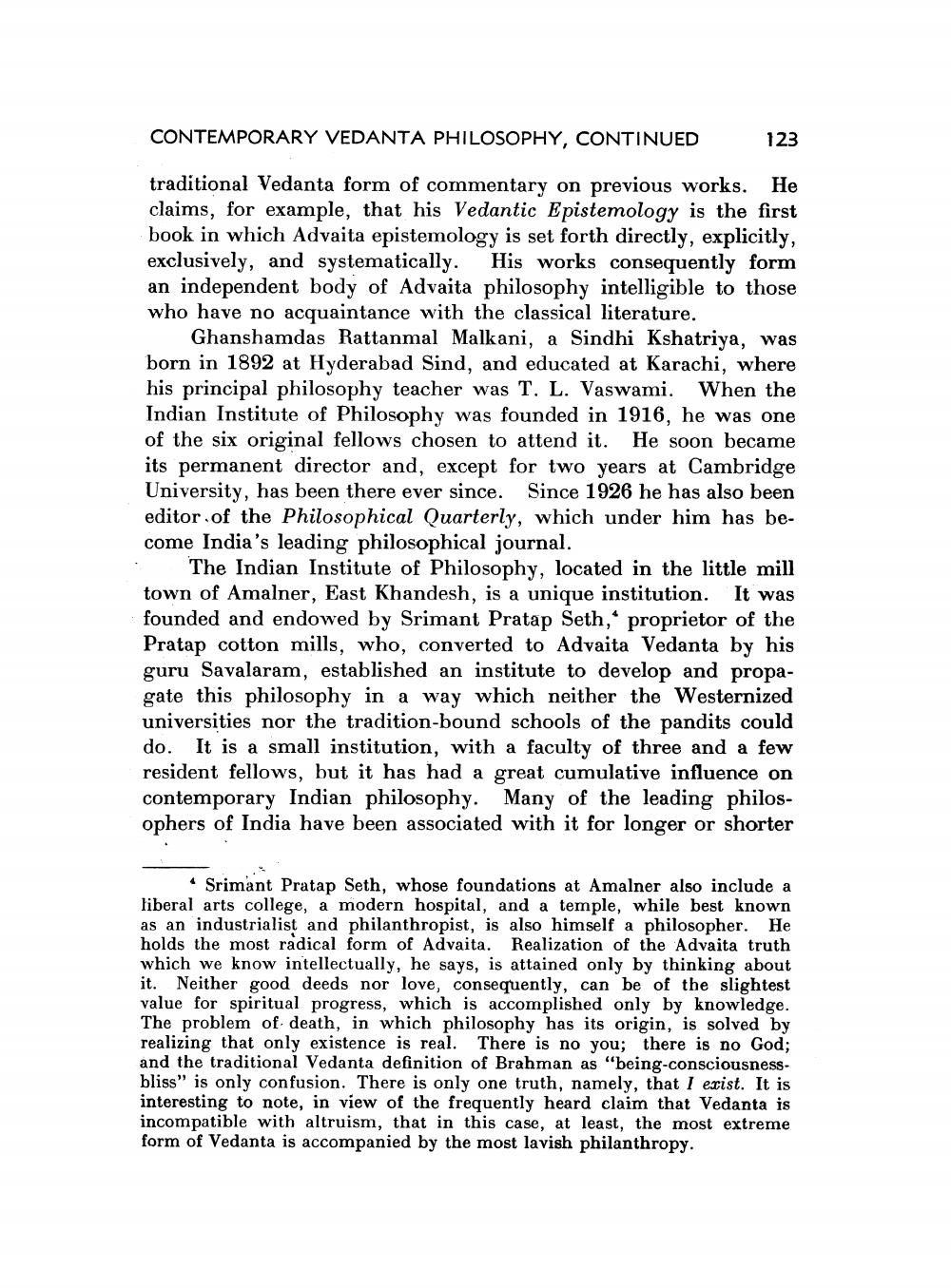Book Title: Contemporary Vedanta Philosophy Continued Author(s): George Burch Publisher: George Burch View full book textPage 2
________________ CONTEMPORARY VEDANTA PHILOSOPHY, CONTINUED 123 traditional Vedanta form of commentary on previous works. He claims, for example, that his Vedantic Epistemology is the first book in which Advaita epistemology is set forth directly, explicitly, exclusively, and systematically. His works consequently form an independent body of Advaita philosophy intelligible to those who have no acquaintance with the classical literature. Ghanshamdas Rattanmal Malkani, a Sindhi Kshatriya, was born in 1892 at Hyderabad Sind, and educated at Karachi, where his principal philosophy teacher was T. L. Vaswami. When the Indian Institute of Philosophy was founded in 1916, he was one of the six original fellows chosen to attend it. He soon became its permanent director and, except for two years at Cambridge University, has been there ever since. Since 1926 he has also been editor of the Philosophical Quarterly, which under him has become India's leading philosophical journal. The Indian Institute of Philosophy, located in the little mill town of Amalner, East Khandesh, is a unique institution. It was founded and endowed by Srimant Pratap Seth, proprietor of the Pratap cotton mills, who, converted to Advaita Vedanta by his guru Savalaram, established an institute to develop and propagate this philosophy in a way which neither the Westernized universities nor the tradition-bound schools of the pandits could do. It is a small institution, with a faculty of three and a few resident fellows, but it has had a great cumulative influence on contemporary Indian philosophy. Many of the leading philosophers of India have been associated with it for longer or shorter Srimant Pratap Seth, whose foundations at Amalner also include a liberal arts college, a modern hospital, and a temple, while best known as an industrialist and philanthropist, is also himself a philosopher. He holds the most radical form of Advaita. Realization of the Advaita truth which we know intellectually, he says, is attained only by thinking about it. Neither good deeds nor love, consequently, can be of the slightest value for spiritual progress, which is accomplished only by knowledge. The problem of death, in which philosophy has its origin, is solved by realizing that only existence is real. There is no you; there is no God; and the traditional Vedanta definition of Brahman as "being-consciousnessbliss" is only confusion. There is only one truth, namely, that I exist. It is interesting to note, in view of the frequently heard claim that Vedanta is incompatible with altruism, that in this case, at least, the most extreme form of Vedanta is accompanied by the most lavish philanthropy.Page Navigation
1 2 3 4 5 6 7 8 9 10 11 12 13 14 15 16 17 18 19 20 21 22 ... 36
